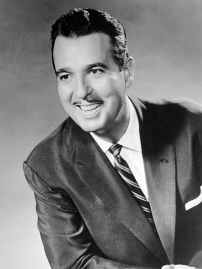Listen
Merle Travis’ Version:
About
Wikipedia “Sixteen Tons” is a song about the life of a coal miner, first recorded in 1946 by American country singer Merle Travis and released on his box set album Folk Songs of the Hills the following year. A 1955 version recorded by Tennessee Ernie Ford reached number one in the Billboard charts, while another version by Frankie Laine was released only in Western Europe, where it gave Ford’s version competition. While the song is usually attributed to Merle Travis, to whom it is credited on his 1946 recording, George S. Davis, a folk singer and songwriter who had been a Kentucky coal miner, claimed on a 1966 recording for Folkways Records to have written the song as “Nine-to-ten tons” in the 1930s. Davis’ recording of his version of the song appears on the albums George Davis: When Kentucky Had No Union Men and Classic Mountain Songs from Smithsonian. Tennessee Ernie Ford recorded Sixteen Tons in 1955 as the b-side of his cover of the Moon Mullican standard, “You Don’t Have to Be a Baby to Cry“. Its fatalistic tone contrasted vividly with the sugary pop ballads and rock & roll just starting to dominate the charts at the time. With Ford’s snapping fingers and a unique clarinet-driven pop arrangement, it quickly became a million seller.
Trivia
- According to Travis, the line from the chorus, “another day older and deeper in debt”, was a phrase often used by his father, a coal miner himself.
- The line, “I owe my soul to the company store“, is a reference to the truck system and to debt bondage. Under this scrip system, workers were not paid cash; rather they were paid with non-transferable credit vouchers which could be exchanged only for goods sold at the company store. This made it impossible for workers to store up cash savings. Workers also usually lived in company-owned dormitories or houses, the rent for which was automatically deducted from their pay.
- Ford’s version hit Billboard‘s Country Music charts in November 1955 and held the #1 position for ten weeks, then crossed over and held the number 1 position on the pop music charts for eight weeks, besting the competing version by Johnny Desmond.
- In the United Kingdom, it competed with versions by Edmund Hockridge and Frankie Laine. Laine’s version was not released in the United States but sold well in the UK: it was released on October 17 and by October 28 had sold 400,000 copies.
- On November 10, a million copies had been sold; two million were sold by December 15.

This list is really being stylistic trends in focus. In the middle of all this rock n roll experimentation and vocal group torrents here is a ‘throw back’ track, which I notice is the case since this version is 10 years after the original! Jazzy accompaniment, telling a story, Hit The Road Jack cribs from this when it comes out later too…Interesting stuff!
Really interesting hybrid of styles happening here. Clearly a Country song, but as you say Paul, with such a Jazzy arrangement.
A lot of the other tracks we’ve had so far have emphasized the role of Rhythm and Blues on the sound of Rock n Roll. Here’s the other important ingredient.
Just for comparison, I’ll put the Merle Travis version up.
Rootsy! Without that jazzy arrangement and with the spoken parts it’s straight country, very cool. You can kind of imagine the dude just sitting outside the company store and all the other workers nodding at him and grumbling about the bullshit rort where they are getting paid in company currency that they can only spend in the company store, at greatly inflated prices, so they end up with nothing owing the company everything.